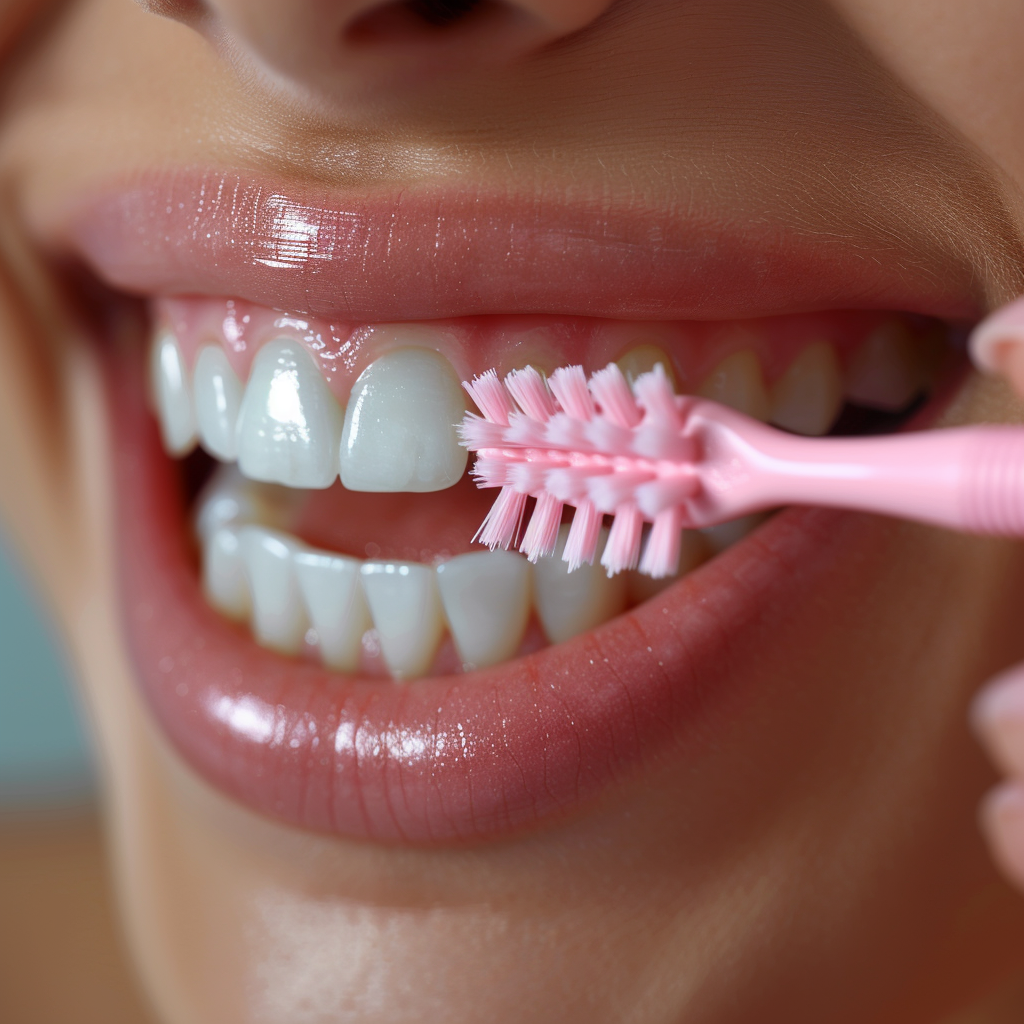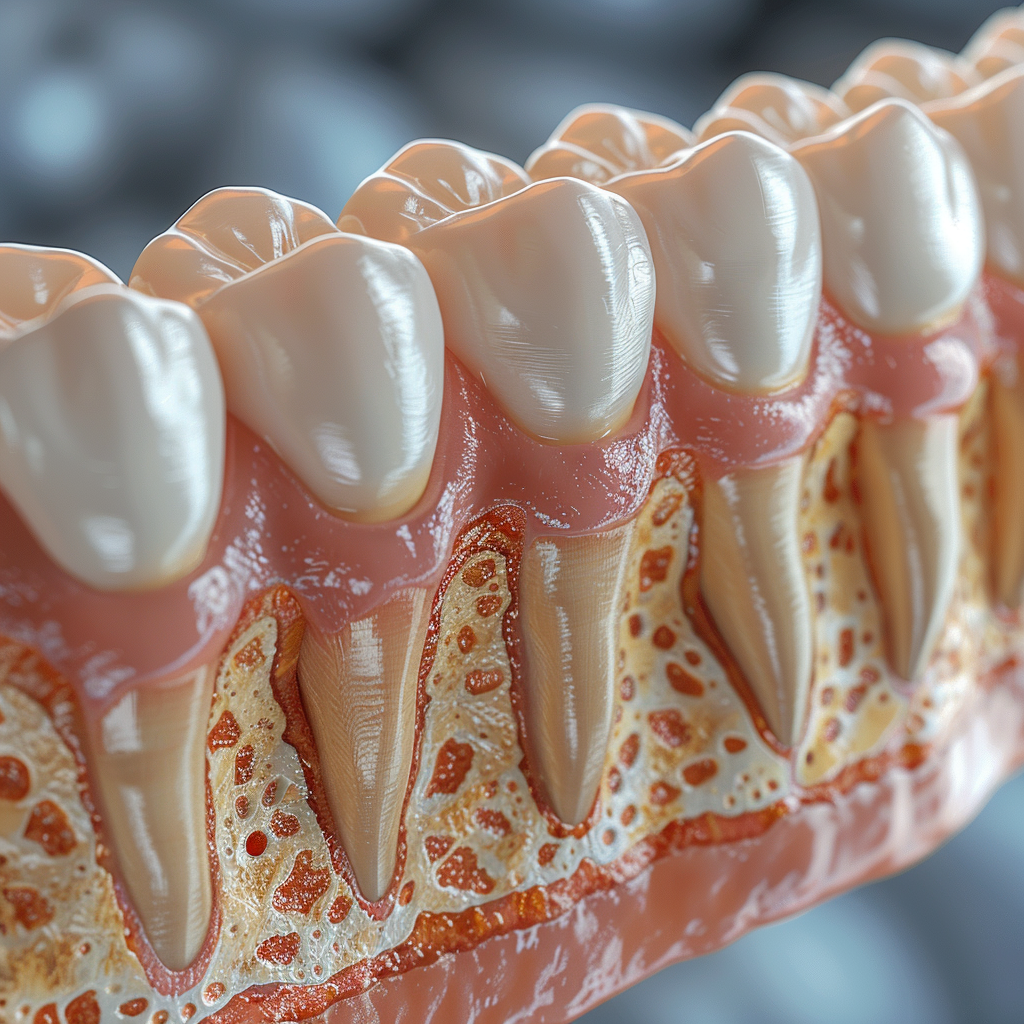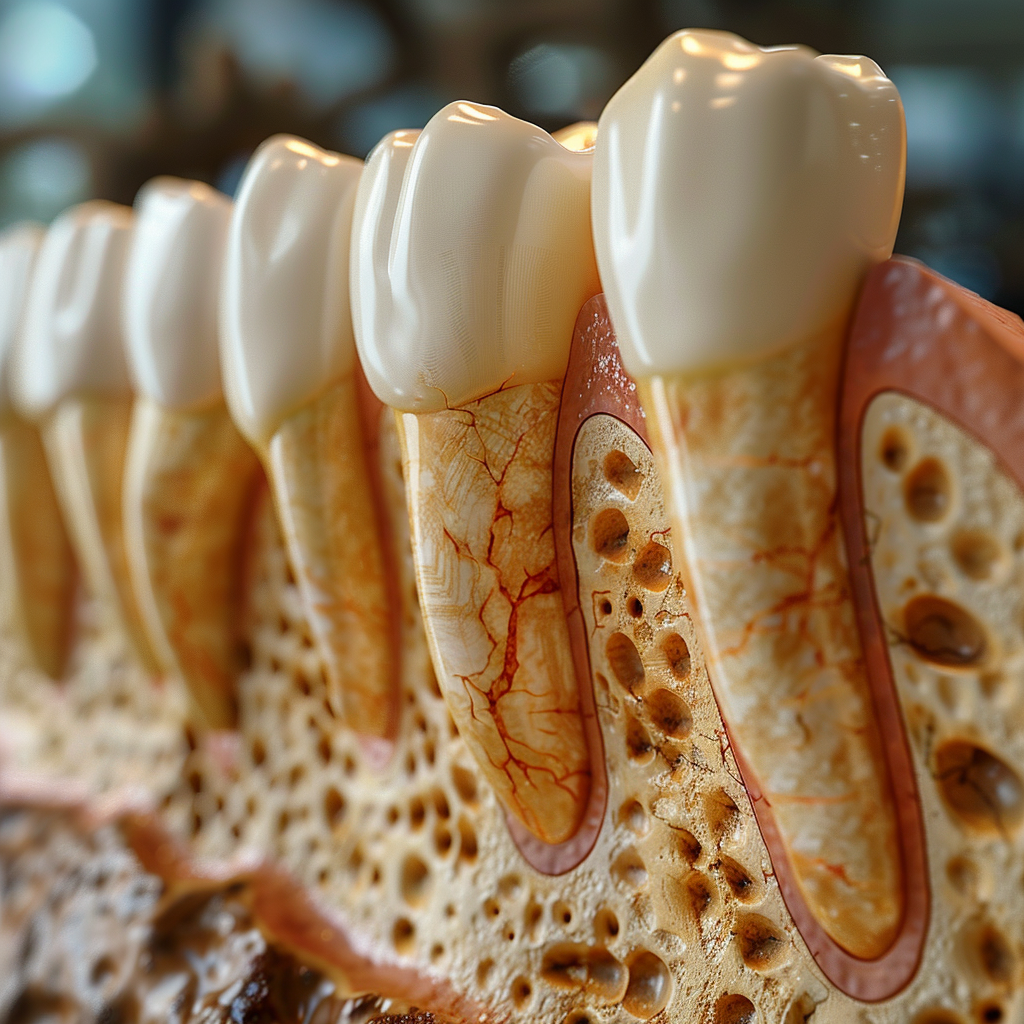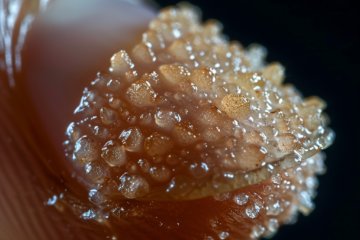
What is Dental Plaque?
Dental plaque is a sticky, colorless film of bacteria that forms on your teeth. This biofilm starts forming shortly after you eat or drink anything other than water. The bacteria in plaque feed on sugars in your food, producing acids that can damage your tooth enamel and lead to cavities.
How Does Plaque Form?
Plaque forms when bacteria in your mouth mix with sugary or starchy foods. When you eat, bacteria feast on these food particles, especially sugars, producing acids as a byproduct. These acids combine with bacteria, food debris, and saliva to form plaque.
The Impact of Plaque on Oral Health
Plaque can cause various oral health issues if not properly managed. The acids produced by bacteria in plaque can erode tooth enamel, leading to cavities. If plaque isn’t removed through regular brushing and flossing, it can harden into tartar, which can only be removed by a dental professional. Tartar buildup can cause gum inflammation, leading to gingivitis and more severe gum disease.
Importance of Preventing Dental Plaque
Avoiding Tooth Decay
Preventing plaque formation is crucial in avoiding tooth decay. When plaque remains on teeth for too long, it can wear down the enamel, leading to cavities that might require fillings, crowns, or even root canals.
Preventing Gum Disease
Plaque that isn’t removed can cause gum disease. Gingivitis, the early stage of gum disease, can progress to periodontitis if untreated, potentially leading to tooth loss. Regular oral hygiene can help prevent these serious issues.
Maintaining Fresh Breath
Plaque buildup can cause bad breath (halitosis). Regular brushing, flossing, and using mouthwash can help keep your breath fresh by reducing the bacteria in your mouth.

Daily Oral Hygiene Practices
Choosing the Right Toothbrush
Selecting a toothbrush with soft bristles and a comfortable handle is essential. Soft bristles are gentle on your gums and effective at removing plaque without causing damage.
Effective Brushing Methods
Brush your teeth at least twice a day for two minutes each time. Use gentle, circular motions and make sure to brush all surfaces of your teeth, including the fronts, backs, and chewing surfaces. Don’t forget your tongue, as it can harbor bacteria.
Importance of Flossing
Correct Flossing Technique
Flossing removes plaque and food particles from between your teeth and under the gumline, areas your toothbrush can’t reach. Use about 18 inches of floss, winding most around your middle fingers. Hold the floss tightly between your thumbs and forefingers, and gently slide it between your teeth, curving it into a C shape to clean each side of every tooth.
Using Mouthwash
Benefits of Antimicrobial Mouthwash
Using an antimicrobial mouthwash can help reduce plaque and prevent gingivitis. Swish the mouthwash in your mouth for about 30 seconds after brushing and flossing to kill bacteria and freshen your breath.
Dietary Choices for Healthy Teeth
Calcium-Rich Foods
Calcium strengthens your teeth and bones. Incorporate dairy products like milk, cheese, and yogurt, as well as leafy greens and almonds into your diet to ensure you’re getting enough calcium.
Crunchy Fruits and Vegetables
Crunchy fruits and vegetables like apples, carrots, and celery can help clean your teeth while you eat them. They stimulate saliva production, which naturally cleanses your mouth.
Foods to Avoid
Sugary and Acidic Foods
Sugary and acidic foods contribute to plaque formation and tooth decay. Limit your intake of candies, sodas, and citrus fruits. When you do consume them, rinse your mouth with water afterward to help wash away some of the sugars and acids.
Regular Dental Check-Ups
Frequency of Visits
Visit your dentist at least twice a year for regular check-ups and cleanings. These visits can help catch any potential issues early and keep your teeth and gums healthy.
Professional Cleanings
Professional cleanings remove tartar that your toothbrush and floss can’t. Your dental hygienist will use special tools to remove tartar buildup, polish your teeth, and give you tips on maintaining good oral hygiene at home.
Natural Remedies to Combat Plaque
Oil Pulling
How to Perform Oil Pulling
Oil pulling involves swishing a tablespoon of oil (like coconut or sesame oil) in your mouth for about 15-20 minutes. This practice can help reduce bacteria and plaque in your mouth. Spit out the oil in a trash can, not the sink, to avoid clogging your pipes.
Baking Soda Toothpaste
DIY Baking Soda Toothpaste Recipe
Baking soda is a natural abrasive that can help remove plaque. You can make a simple toothpaste by mixing baking soda with a small amount of water until it forms a paste. Brush with this mixture once a week for a natural clean.

Lifestyle Habits That Affect Oral Health
Smoking and Oral Health
Smoking significantly increases the risk of gum disease and oral cancer. Quitting smoking can improve your oral health and reduce plaque buildup.
Hydration and Saliva Production
Staying hydrated is crucial for maintaining saliva production. Saliva helps wash away food particles and bacteria, keeping your mouth clean. Drink plenty of water throughout the day to support this natural cleansing process.
Understanding the Role of Saliva
Saliva’s Natural Cleansing Properties
Saliva contains enzymes that help break down food particles and wash away bacteria. It also neutralizes acids produced by bacteria, protecting your teeth from decay.
How to Stimulate Saliva Production
Chewing sugar-free gum, especially those containing xylitol, can stimulate saliva production. Eating crunchy fruits and vegetables and drinking plenty of water also helps maintain adequate saliva levels.
Innovative Dental Care Products
Electric Toothbrushes
Electric toothbrushes can be more effective at removing plaque than manual toothbrushes. They often have built-in timers to ensure you brush for the recommended two minutes and various settings for different cleaning needs.
Water Flossers
Water flossers use a stream of water to remove plaque and food particles between your teeth and below the gumline. They are especially useful for people with braces or dental work that makes traditional flossing challenging.
Conclusion
Preventing dental plaque is essential for maintaining a healthy smile and avoiding more serious dental issues. By following a comprehensive oral hygiene routine, making smart dietary choices, and visiting your dentist regularly, you can keep plaque at bay. Incorporate these simple steps into your daily life to ensure your teeth and gums stay healthy and strong.
FAQs
How often should I brush my teeth to prevent plaque?
You should brush your teeth at least twice a day, preferably in the morning and before bedtime, to effectively prevent plaque buildup.
Can diet alone prevent dental plaque?
While a healthy diet is crucial for oral health, it should be combined with regular brushing, flossing, and dental check-ups to effectively prevent plaque.
What are the signs of plaque buildup?
Signs of plaque buildup include bad breath, yellow or brown stains on your teeth, and red, swollen gums that may bleed when you brush or floss.
Are natural remedies effective against plaque?
Natural remedies like oil pulling and baking soda can help reduce plaque but should be used in conjunction with traditional oral hygiene practices for the best results.
How important are professional dental cleanings?
Professional cleanings are very important as they remove tartar buildup that cannot be removed by regular brushing and flossing, helping to prevent gum disease and other oral health issues.



